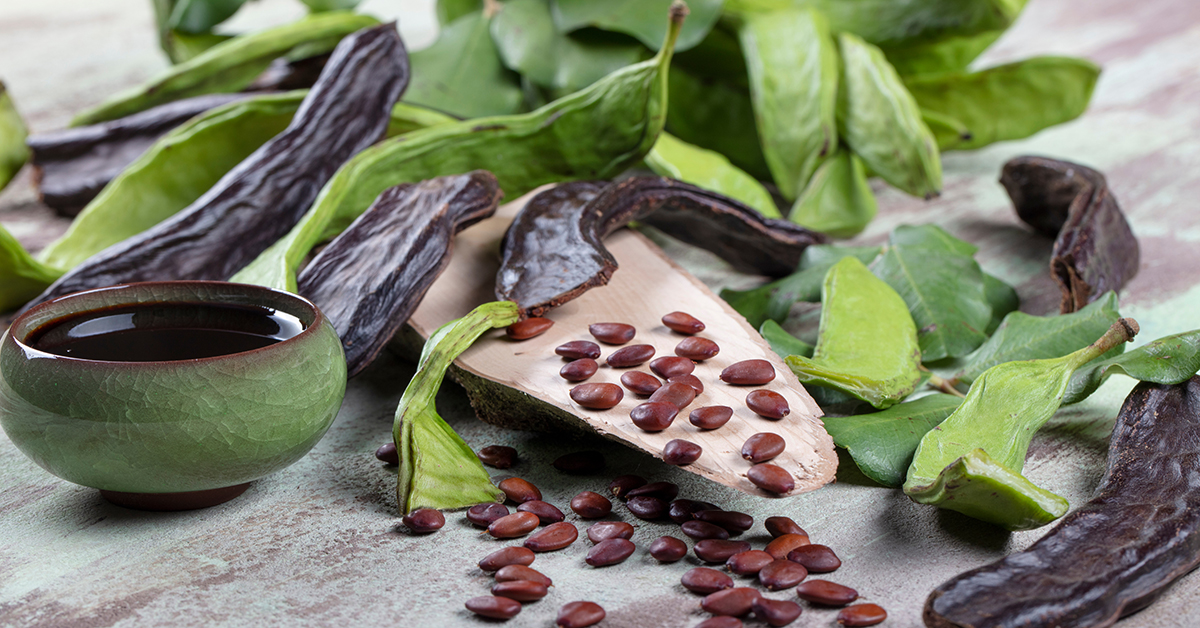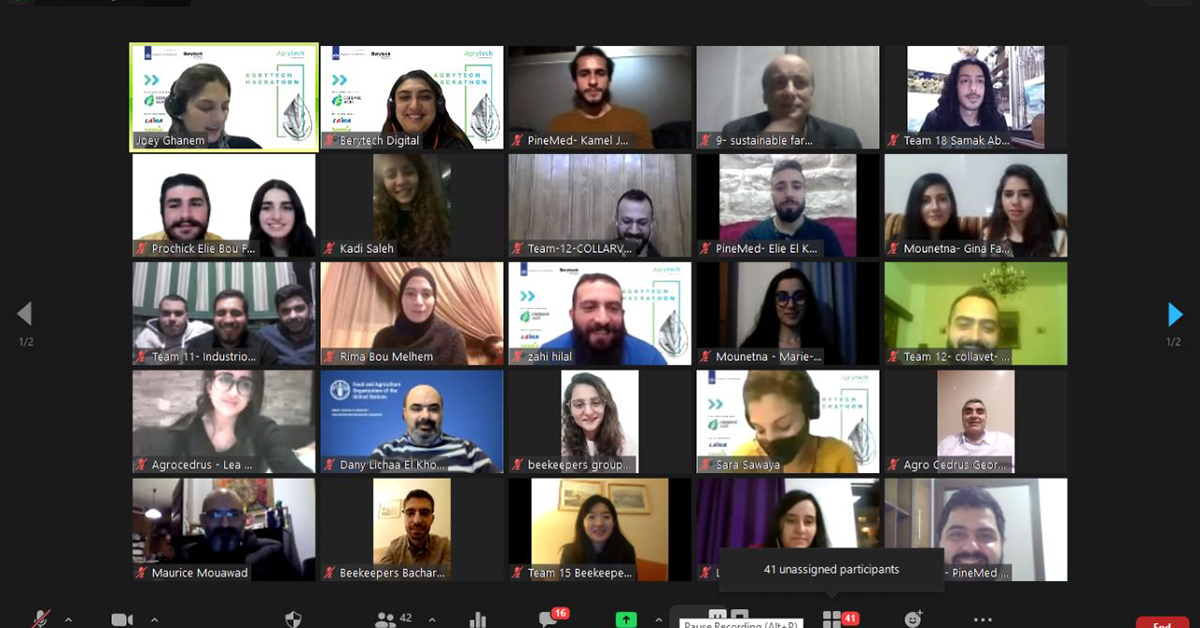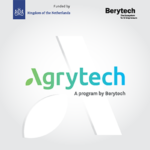
Agrocedrus – a team working on valorizing the carob fruit to create added-value products, won first place at the 2020 edition of the Agrytech Hackathon focusing on innovative solutions to challenges in the agri-food industry. The event was organized by Berytech, supported by the Embassy of the Kingdom of The Netherlands in Lebanon, in partnership with Debbane Agri, Tanmia, Lama Foods, and Robinson Agri.
Innovating, Hacking, and Winning
The winning team focused their solution on creating different production streams from the carob trees that many local farmers have invested in because they require minimal maintenance and irrigation.
Beyond the single-revenue stream of carob molasses, the team has worked to create diversified products to include carob flakes from the fruit, cosmetic and medicinal material from the seed, and natural thickening agents from the carob bean gum. The Agrocedrus team is now qualified to join the fourth batch of the Agrytech Accelerator, along with the winners of second place. They won the $4500 first prize divided into an immediate prize of $2,500 and a grant of $2,000 which they will receive to validate their solution during the first phase of the accelerator program.
Beekeepers and Collarvet both won the second prize of $3500, an immediate prize of $1500, and a grant of $2,000 during the accelerator program. Beekeepers have innovated a beekeeping box that is easy to use, light, isolated and cheap, while Collervat has created an IoT device for cattle that scans the body temperature, feeding activity, body posture, respiration activity, ambient temperature, and humidity, using sensors.
The third winner, Pinemed, a mobile application that acts as an early warning system for farmers about the presence of different invasion pests that attacks the pine trees, won an immediate grant of $1000.
Maroun N. Chammas, Chairman and CEO of Berytech, shared his high hopes with the participants: “Thank you for putting the effort to go through the Hackathon despite all the gloomy outlook in the country. I hope all your efforts are going to be rewarded by creating your possibilities, forming your own companies, and building your future.”
Similarly, the Ambassador of the Kingdom of the Netherlands in Lebanon, H.E. Frederique de Man, pushed the participants to work hard on their ideas: “We’re looking forward to getting your fresh take on the multiple challenges that the sector is facing. The Agrytech Program has shown that new ideas can indeed lead to building a profitable business in Lebanon.”
Teams and Judges

The judges included Maroun N. Chammas – Chairman and CEO of Berytech, Georges Lahoud – Executive Advisor and CFO at Coca Cola, Nadine El Khoury – COO at Robinson Agri, Zaher Ballout – General Manager at Debbane Agri, Mario Akhras – CEO at Tanmia, Hammam Samad – Executive Strategist at Lama Foods, and Rawad Assaf – Founding Partner at Rams Services.
The Berytech team qualified 204 participants in the virtual hackathon and 19 teams pitched in the pre-selection process before being shortlisted to 9 finalists.
In his opening speech, Ramy Boujawde, Deputy GM of Berytech, reiterated the importance of innovating in the sector: “Although the sector faces many challenges, this is an excellent opportunity for Lebanon and each of you because I believe that solving agriculture problems not only in Lebanon but in the region as a whole has a lot of opportunities. If there is one thing we don’t stop doing in any circumstance is eating. We eat, we drink and we continue to survive. The population is growing, the resources are scarce and we have all the tools and technologies to make sustainable agriculture a way of doing things.”
The judges who pre-selected the teams are Maurice Mouawad – Business Consultant at Stanford Seed, Abbas Sidaoui – Co-Founder at Revotonix, Carine Fersan – Manager, Marketing and Peer Learning at Financial Alliance for Women, Rodrigue Balaa – Chairperson at the University of Balamand, Lina Zougheib – Seed Manager at Robinson Agri, Ziad Ghanem – Central Technical & Crop Protection Manager at Debbane Saikali Group and Gilbert Medawar – Central Technical Manager at Debbane Saikali Group.
“At a time when the world is going through a pandemic and the country is suffering from an economic collapse, here we are discussing the future of the innovations of the selected teams. Your projects and Debbane Agri share values in common where we are persevering to turn challenges into opportunities through excellence and innovation,” confirmed Zaher Ballout, GM at Debbane AGri.
Rima Freiji, Chairwoman of the board of Tanmia, also expressed her excitement: “I’m very happy that there is this paradigm shift in addressing the food and agriculture sector and also the appreciation that local production is what can give us food security. Being able to provide more employment is something that I hope we will all work for and it starts with ideas like yours.”
“You think you need us for our experience and know-how but the truth is that we need you, we need your energy, we need to think like a startup,” said Nadine Khoury COO of Robinson Agri.
The Hackathon Agenda and Activities
Participants were presented with a plethora of real-life challenges from organizations and institutions working in the agri-food industry in Lebanon including the International Center for Agricultural Research in the Dry Areas – ICARDA, Jean-Paul II Foundation – World Food Program, WFP – Oikos Institute Lebanon, Renee Mouawad Foundation focus groups, CELIM, LebRelief, OIE, USJ-ESIAM, Crown Flour Mills and the Food and Agriculture Organization (FAO).
During the fifteen days of the virtual Hackathon, participants learned how to transform their idea into a valid business solution through intensive online workshops, how to prototype their solution, and then how to pitch it to the panel of judges.
The Problem Identification and Design Thinking workshops helped the teams clearly define the personas of their ideal customers and the problem they want to solve.
The Validation workshop provided the teams with the tools to methodically achieve market validation and learn how to collect the data necessary to validate or negate their venture hypotheses.
The UX/UI workshop helped the teams map the digital customer journey and learn to get feedback on the appropriate user interface from early adopters.
The Lean Model Canvas helped the teams determine the business advantages of their planned product and focus on evaluating key metrics on the revenues as well as the costs end.
The Product Development workshop introduced the different techniques in prototyping, including fast prototyping techniques and how to choose the right technique in electronics and 3D models.
Teams were introduced to different quick methods to develop the Internet of things, how data can be sent back and forth between the server and any device, protocols, and techniques for fast development.
The Pitching workshop provided the teams with pitching techniques and best practices. Entrepreneurs learned how to sell their product, their company, and themselves and how to develop different pitch decks to share with diverse individuals at any point in time.
Watch the final pitches on our YouTube channel here.
Agrytech Accelerator
 Applications for Batch IV of the Agrytech Accelerator are currently open. Berytech is sourcing the next agri-food innovators to help them grow their idea into a successful business with global impact. If you’re innovating in agriculture or food, join the fourth batch of the Agrytech Program and get up to $100k in funding and support to scale your business to success within 1 year. Learn more by clicking here.
Applications for Batch IV of the Agrytech Accelerator are currently open. Berytech is sourcing the next agri-food innovators to help them grow their idea into a successful business with global impact. If you’re innovating in agriculture or food, join the fourth batch of the Agrytech Program and get up to $100k in funding and support to scale your business to success within 1 year. Learn more by clicking here.







